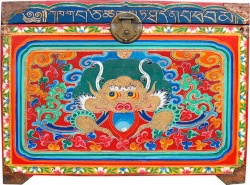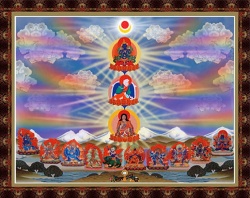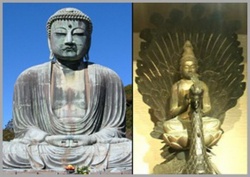'Xingqi' as a Modern Coinage
The official pedigree for the word 星期 xīngqī , at least that presented for popular consumption, is summarised in the standard Xiandai Han'yu Cidian (现代汉语词典) as follows
- China's ancient calendar ordered the 28 constellations according to the sun, moon, Mars, Mercury, Jupiter, Venus, and Saturn. Seven days made one cycle, which was then repeated. These were
called the 'seven luminaries' (七曜 qīyào). The Western calendar also treated seven days as one week, which coincided with the Chinese tradition of 'seven luminaries'. Later, in accordance with international custom, the seven days ordered in this way became the unit for calculating days of work, study, and rest, and were called a 'star period' (星期 xīngqī).
The message that this entry tries to convey (it is a little coy in its phrasing) is that the 'seven luminaries' arose in China and that the word xīngqī is derived from these ancient 'seven luminaries'.
What lies in the background of this, of course, is a desire to demonstrate that, while the 'week' in its current form is an import from the West, it actually originated in China. It does this by attempting to link the seven luminaries to China's 28 ancient constellations.
There are two problems with this story:
- 1. The claim that the 'seven luminaries' arose in China does not appear to be well supported.
- No references to the 'seven luminaries' are found before 4th century AD. Moreover, the order of the seven luminaries did not follow the ancient order of the Chinese elements (see Japanese days of the week). Since the Middle Eastern seven luminaries predate Chinese occurrences, these all point to borrowing from an external source.
- 2. Even if it is possible to prove that the 'seven luminaries arose in China, the word 星期 xīngqī in the meaning 'week' cannot claim any such antiquity.
- 星期 xīngqī ('star period') did not refer to the seven-day week in ancient China. It was actually a romantic occasion in Chinese mythology: the seventh evening of the seventh lunar month, the one night of the year when the 'Herd Boy' and 'Weaving Girl' (the stars Altair and Vega) were said to meet in heaven. This is still celebrated in modern China as Qixi (七夕
qīxī), sometimes known as the 'Star Festival'. Thus, the use of the term 星期 xīngqī to mean 'week' may have been inspired by the ancient 'seven luminaries' but is not actually descended from it historically.
- a. The term 星期天 xīngqī tiān for Sunday is a curious one. The word does not have any readily identifiable meaning. Literally speaking it means 'star period day' or 'week day', which does not make a great deal of sense. By contrast, 礼拜天 lǐbaìtiān has a very clear meaning, namely 'day of worship', which is easily accounted for in Christian terms. The best explanation for this is that the meaningful 礼拜天 lǐbaìtiān was, for some reason, replaced by the meaningless 星期天 xīngqī tiān.
All these circumstances point to the strong possibility that 星期 xīngqī is a modern innovation, not an ancient term. The claimed pedigree for 星期 xīngqī is a convenient fiction designed to back up its status as the 'correct' word for 'week' in Chinese.
By comparison, the term 礼拜 lǐbài gets short shrift in Chinese dictionaries and reference books. In fact, it almost seems as though there is a quiet conspiracy to hush up its existence and origins.
In the sense of 'week', it is mostly listed without comment as a secondary meaning of 礼拜 lǐbài, the primary meaning being 'worship'. The closest that the Cihai (辞海), an authoritative Mainland encyclopaedia, comes to linking the two senses of the word is in the following entry:
- 礼拜 lǐbài (worship): The major religious activity of Protestant Christianity. After the 'Passion', Jesus Christ is considered to have been 'resurrected' on Sunday (星期日 xīngqīrì), which thus became the day of worship (礼拜日 lǐbàirì).
Note the wording for 'Sunday' and 'day of worship', which implies that lǐbàirì was somehow introduced by the Christians as a variant name for 'Sunday'.
Looking at bilingual dictionaries, the Iwanami Chugokugo Jiten (岩波中国語辞典, Iwanami Chinese Dictionary), compiled in 1963, notes the reason why 礼拜 lǐbài is preferred to 星期 xīngqī :
The campaign against lǐbài seems to have been most successful in Mainland China. Shogakkan's Chunichi Jiten (中日辞典, Chinese-Japanese Dictionary) comments:
- In China, days were originally counted in 旬 xún (ten-day units), but after the coming of Christianity, the concept of the seven-day week was born. The fact that the weeks and days of the week are called 礼拜天 lǐbàitiān sic is related to this. Even now the word 礼拜 lǐbài is more commonly used in Chinese-speaking areas of Taiwan and South-east Asia than the word 星期 xīngqī . Even on the mainland, lǐbài is still commonly used in conversation to refer to weeks and days of the week.
The strong preference for 星期 xīngqī in written Chinese is confirmed by an example which I personally saw on a current affairs TV program (September 2001). In the program, a speaker mentioned that he was leaving 'next week'. The word used was clearly lǐbài. However, the
Chinese-language subtitles (frequently used to represent colloquial language, regional language or speech in unclear recording conditions) changed this to xīngqī . Lǐbài was obviously regarded as unsuitable in writing for public use. I have seen similar examples on other occasions.
It is somewhat ironic that lǐbài has been replaced and suppressed in this way. Unlike the Japanese and Vietnamese names for the days of the week, lǐbài may be the only naming system that has arisen spontaneously in the Orient and not been borrowed from the West. And unlike xīngqī , it is a word of the people, not a name imposed from above.


